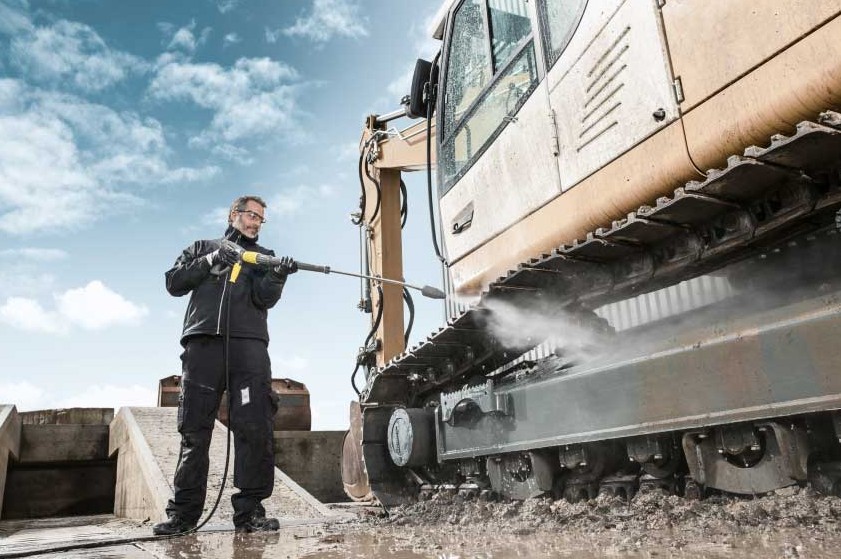
How to Select the Right High-Pressure Washer for Industrial Equipment
Maintaining industrial equipment and keeping machines clean is no small task. Dirt, grease, grime, and other build-ups look bad and can shorten your equipment’s lifespan. Investing in pressure washing trailers can be a game changer. But here’s the tricky part: not all high-pressure washers are created equal. Picking the wrong one can leave you frustrated, underperforming, and even dealing with more damage than you started with. So how do you make sure you’re investing in the right tool for the job? Let’s break it down.
Know Your Cleaning Needs
Before you even glance at specs or brands, take a moment to think about the equipment you’re maintaining. Are you dealing mostly with light dirt and dust, or heavy-duty grease, oil, and caked-on mud? The type of contaminants on your machinery will largely determine the pressure and flow rate you need. If you’re cleaning trailers and transport vehicles covered in hardened grime, for instance, you’ll need something more robust than a standard consumer-grade washer.
It’s also worth considering how frequently you’ll be using the washer. Are you running daily cleanings or just occasional maintenance? High-use scenarios demand equipment that can handle prolonged operation without overheating or breaking down. Honestly, nothing’s worse than buying a washer that seems fine on paper, only to have it fail during your first busy week.
Lastly, think about the surfaces you’ll be cleaning. Some industrial surfaces can withstand high-pressure streams without damage, but delicate components or painted surfaces might require adjustable pressure settings. Having a washer that can adapt to different situations will save you a lot of headaches in the long run.
Pay Attention to PSI and GPM
PSI, or pounds per square inch, measures the pressure your washer can produce. GPM, gallons per minute, tells you how much water flows through the system. Together, these numbers give you an idea of how powerful and effective your washer will be. Higher PSI is great for tough grime, while a higher GPM can help rinse off dirt faster. However, more isn’t always better. Too much pressure can damage sensitive machinery, while too little leaves you scrubbing by hand.
You’ll also notice that washers fall into electric and gas-powered categories. Gas washers often deliver higher PSI and GPM, making them ideal for heavy industrial jobs, but they’re louder, require more maintenance, and aren’t as eco-friendly. Electric models tend to be quieter and more convenient, perfect for indoor areas or light-duty tasks. You need to weigh what matters more for your operations.
And don’t forget about the hose and nozzle. A washer’s effectiveness isn’t just determined by its engine. You also need to consider how it delivers water. Nozzles that let you adjust spray patterns or pressure levels give you more control and reduce the risk of damaging sensitive equipment.
Consider Durability and Build Quality
Industrial equipment cleaning isn’t a one-off job; it’s a long-term commitment. That means your washer needs to be built tough. Look for models with stainless steel or brass components, industrial-grade pumps, and reinforced hoses. Cheap plastic parts might seem fine at first, but they’ll wear out fast under constant heavy use.
Mobility is another factor to keep in mind. If your cleaning operation covers a large warehouse or outdoor yard, you’ll want a washer that’s easy to move around. Some models have sturdy wheels and compact frames, while others are bulkier but might include features like hose reels or onboard storage for attachments.
Maintenance is also critical. Industrial washers that are designed with serviceability in mind will save you time and money. Check how easy it is to replace filters, clean the pump, or swap out nozzles. A washer that’s easy to maintain will last longer and perform more reliably, which is especially important if pressure washing trailers and other heavy machinery is a daily task.
The Bottom Line
Selecting the right high-pressure washer for industrial equipment might seem overwhelming at first. However if you break it down into these key factors, it becomes manageable. Evaluate what your operation really requires. Ask yourself what kind of grime you’re tackling, how often you’re cleaning, and which features will make your life easier. Pressure washing trailers and other heavy equipment isn’t just a chore; it’s a strategic part of running a reliable, efficient operation. Choose wisely, and you’ll see the difference every single day.